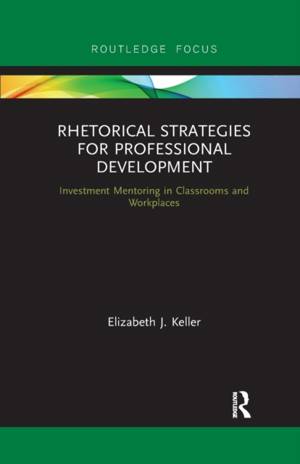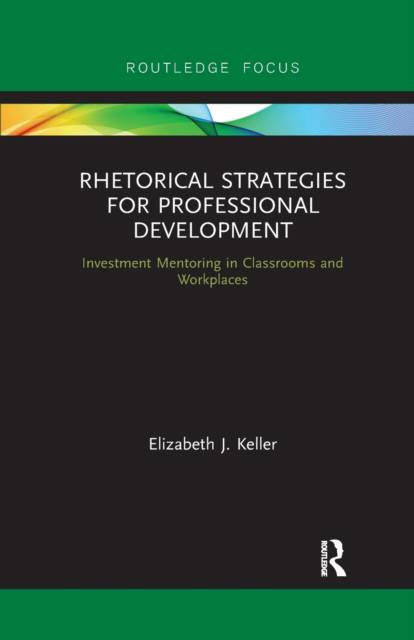
- Retrait gratuit dans votre magasin Club
- 7.000.000 titres dans notre catalogue
- Payer en toute sécurité
- Toujours un magasin près de chez vous
- Retrait gratuit dans votre magasin Club
- 7.000.000 titres dans notre catalogue
- Payer en toute sécurité
- Toujours un magasin près de chez vous
Rhetorical Strategies for Professional Development
Investment Mentoring in Classrooms and Workplaces
Elizabeth J Keller
44,45 €
+ 88 points
Format
Description
This book extends current research and scholarship around mentoring and learning theory, illustrating how mentoring creates, enacts, and sustains multidisciplinary learning in a variety of school, work, and community contexts. In so doing, it examines the relationship between teaching and mentoring, acknowledges the rhetorical invention of mentoring, and recognizes the intersection of gender identity (as a cultural and identity signifier or marker) and mentoring. It uses mentoring as a way to reimagine value-added approaches to research and teaching practices in rhetoric and composition.
Spécifications
Parties prenantes
- Auteur(s) :
- Editeur:
Contenu
- Nombre de pages :
- 132
- Langue:
- Anglais
- Collection :
Caractéristiques
- EAN:
- 9780367606756
- Date de parution :
- 30-06-20
- Format:
- Livre broché
- Format numérique:
- Trade paperback (VS)
- Dimensions :
- 140 mm x 216 mm
- Poids :
- 172 g







